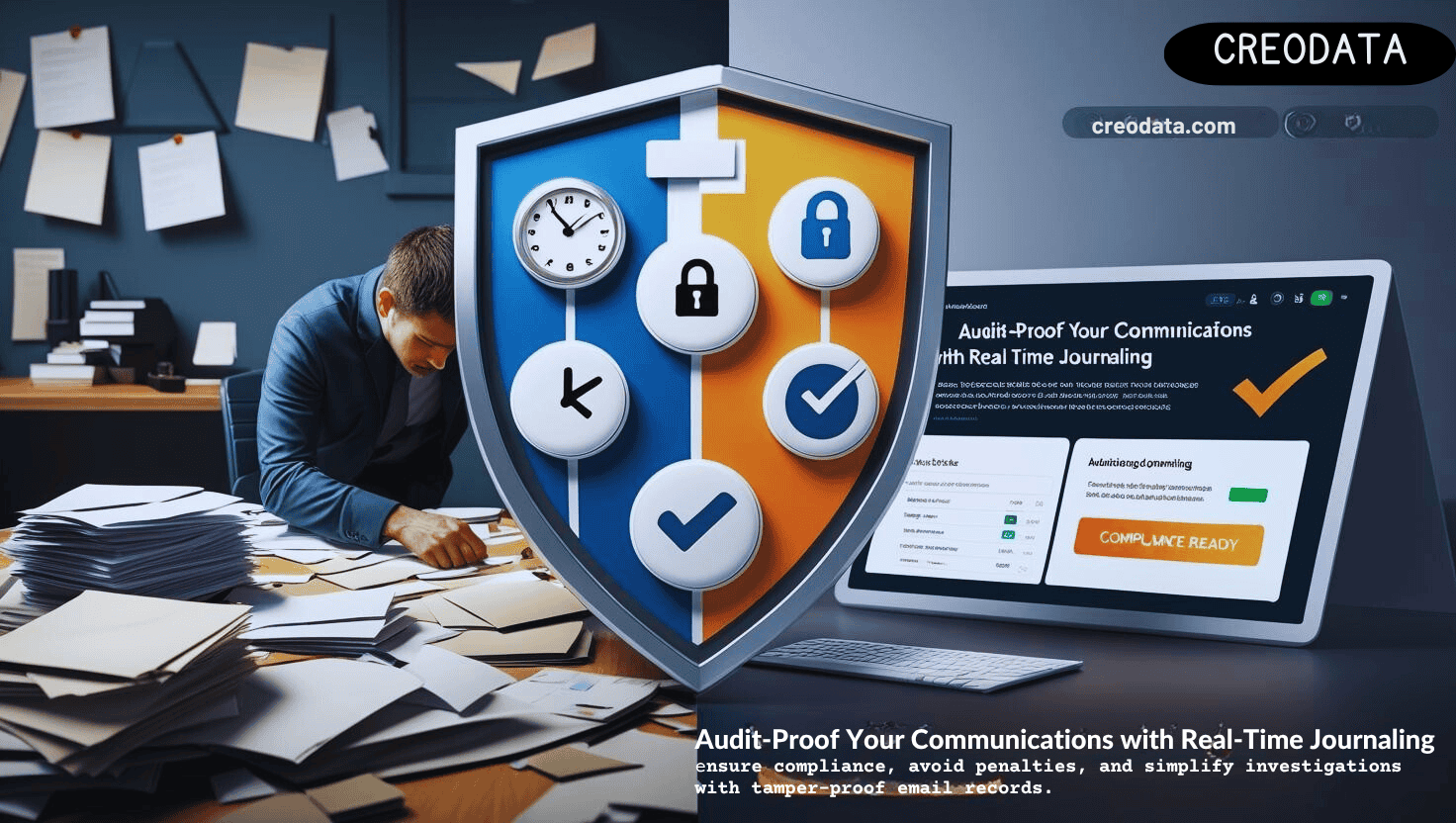The Role of Journaling in Regulatory Investigations
How real-time email journaling ensures audit readiness, regulatory compliance, and helps organizations respond efficiently to investigations and legal holds.

Introduction
In today's highly regulated business environment, organizations must ensure they are prepared for audits and investigations by regulatory bodies. Compliance teams face increasing pressure to maintain accurate records of communications, particularly emails and other electronic correspondence, to demonstrate transparency and adherence to regulations.
Real-time journaling plays a crucial role in audit readiness by capturing, archiving, and indexing all communications in a tamper-proof manner. This article explores how journaling supports compliance efforts, ensures regulatory adherence, and simplifies investigations when auditors request historical communication records.
Understanding Journaling in Compliance
Journaling refers to the automated process of recording and storing electronic communications, such as emails, instant messages, and attachments, in a centralized and secure repository. Unlike traditional archiving, journaling captures all communications in real time, ensuring no data is lost or altered.
Why Audit Readiness Depends on Real-Time Journaling
Audit readiness means having all necessary documentation organized, searchable, and readily available for regulators. Real-time journaling enhances audit readiness in several ways:
1. Ensures Complete Data Capture
- Traditional backups or manual archiving may miss critical emails or allow data deletion
- Journaling captures every inbound, outbound, and internal email as soon as it is sent or received
- Eliminates the risk of employees deleting or altering communications
2. Provides Tamper-Proof Records
- Regulators require unaltered, original copies of communications
- Journaling solutions like CreoData's Mail Journaling use cryptographic hashing and write-once-read-many (WORM) storage to prevent modifications
3. Enables Fast Retrieval During Audits
- Auditors often demand specific communications within tight deadlines
- Advanced journaling systems offer indexed search capabilities, allowing compliance teams to quickly locate and retrieve emails based on sender, recipient, date, or keywords
4. Supports eDiscovery and Legal Holds
- In litigation or investigations, organizations must preserve relevant communications
- Journaling ensures all data is retained and can be placed under legal hold to prevent deletion
5. Reduces Compliance Risks and Penalties
- Firms that fail to produce required records face regulatory penalties
- Real-time journaling minimizes compliance gaps, ensuring organizations meet retention requirements
Comparison: With vs. Without Journaling
Without Journaling
- The firm relies on employees to manually search and retrieve emails from PST files or personal archives
- Some emails may be missing due to accidental deletions or retention policy gaps
- The process is time-consuming, increasing the risk of non-compliance penalties
With Real-Time Journaling (CreoData's Solution)
- All emails are automatically captured and stored in a centralized, encrypted repository
- The compliance team uses advanced search filters to retrieve the exact emails within minutes
- The firm provides a complete, unaltered record, satisfying the auditor's request efficiently
Key Features of an Effective Journaling Solution
To maximize audit readiness, organizations should implement a journaling system with the following capabilities:
- Real-Time Capture – Ensures no emails are missed
- Immutable Storage – Prevents tampering or deletion
- Advanced Search & Retrieval – Enables quick access during audits
- Scalability – Handles large volumes of data without performance issues
CreoData's Mail Journaling offers these features, helping businesses stay audit-ready while reducing compliance risks.
Who Needs This?
- Compliance Officers – Ensuring regulatory adherence
- IT & Security Teams – Implementing secure journaling solutions
- Legal & Risk Management Teams – Managing eDiscovery and litigation holds
- Financial Services Firms – Subject to SEC, FINRA, and other regulations
- Healthcare Organizations – Required to comply with HIPAA communication retention rules
- Corporate Governance Teams – Maintaining transparency and accountability
Conclusion
Regulatory investigations and audits demand complete, unaltered records of business communications. Real-time journaling is a critical tool for compliance teams, ensuring that all emails are captured, stored securely, and retrievable at a moment's notice.
By implementing a robust journaling solution like CreoData's Mail Journaling, organizations can enhance audit readiness, reduce compliance risks, and demonstrate transparency to regulators. In an era of increasing scrutiny, proactive journaling is no longer optional—it's a necessity for compliance success.
For more information:
Visit CreoData Mail Journaling
